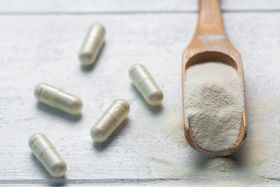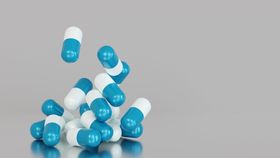Where Does Cholesterol Come From?
Published June 30, 2022.

Cholesterol is a fatty substance that can be found in your blood, but it’s also present in some foods like dairy, meat, and eggs.
Although cholesterol has a bad reputation, having some of it in your blood is necessary for survival. Cholesterol can help your body make vitamin D and hormones that are important for your body to function. However, having too much cholesterol can negatively affect your body and lead to health problems.
Read on to learn more about the different types of cholesterol and where they come from.
What Are the Different Kinds of Cholesterol?
There are three main types of cholesterol that affect the health of your body and can lead to higher chances of heart disease:
- LDL cholesterol (low-density lipoprotein)
- HDL cholesterol (high-density lipoprotein)
- VLDL cholesterol (very-low-density lipoprotein)
1. LDL Cholesterol
This is the cholesterol that is often referred to as "bad" despite being necessary for your body. However, If there is too much of this cholesterol in your blood, you are in medical danger because it causes a buildup of fatty deposits in your arteries and can lead to:
- High blood pressure
- Strokes
- Chest pain
- Heart attacks
- Chronic kidney disease
- Hypercholesterolemia and hyperlipidemia
2. HDL Cholesterol
This is the "good" cholesterol that helps to return the bad cholesterol from your arteries to your liver so it can be removed from the body.
If you have low levels of HDL cholesterol, you have a greater risk of health problems because the above-mentioned process doesn’t happen as it should.
3. VLDL Cholesterol
VLDL cholesterol is produced by your liver and it transports triglycerides in your blood. These triglycerides will be used for energy or stored by your body. They are linked to plaque build-up in the arteries.
Different Sources of Cholesterol
Cholesterol can come from two sources: either your liver makes the cholesterol your body needs, or you consume it when you eat animal products. Meat, dairy products, and poultry all contain the cholesterol that you consume.
The problem is, however, that these foods are high in trans and saturated fats that can lead to your liver making more cholesterol than it should or normally would. As a result, you can go from having a normal cholesterol level to having one that is very unhealthy, all without realizing the true damage you're causing until it's too late.
What Can Raise Cholesterol Levels?
There are many factors that can cause high levels of cholesterol, as discussed below, and many of them are well within your means to address and control.
Lifestyle
- Lack of exercise
- Unhealthy diet (especially fatty food)
- Excessive drinking
- Smoking
Medical Conditions
- Diabetes
- Lupus
- HIV/AIDS
- Chronic kidney disease
- Hypothyroidism
- Obesity
Medications for Specific Disorders
- Acne
- Organ transplants
- High blood pressure
- HIV/AIDS
- Cancer
How to Lower Your Cholesterol
Lowering cholesterol is possible, and there are several ways you can help your body to get back to a healthy level.
Eat Better
Changing your diet can make a big difference. Reduce the number of saturated fats you consume by cutting out as much full-fat dairy and red meat as you can. Also, try to avoid trans fats by eating fewer cookies and crackers. Increase your consumption of omega-3 fatty acids by eating more fish like salmon, mackerel, and herring.
Additionally, consider taking supplements that are good for heart and blood health, such as Cholestrin and Bloodsyl.
Exercise More
Physical activity will also do your body a lot of good. Losing weight will help lower your cholesterol and physical activity can help to increase your good cholesterol level. It’s a good idea to work out for 30 minutes five times a week. It can be challenging to work out so much but consider taking brisk walks, riding a bicycle to work, or playing a sport you enjoy.
Contrary to popular belief, high cholesterol doesn't make you tired.
Quit Smoking
Smoking comes with many health risks, and if you quit, you can help your body improve its ratio of HDL to LDL cholesterol.
Drink Less
Although moderate drinking has been linked with higher levels of good cholesterol, the minor benefits do not make alcohol a good idea. If you do drink, you should do so in moderation. Drinking too much not raises cholesterol levels but can lead to other health problems too, such as heart failure, liver cirrhosis, and high blood pressure.







